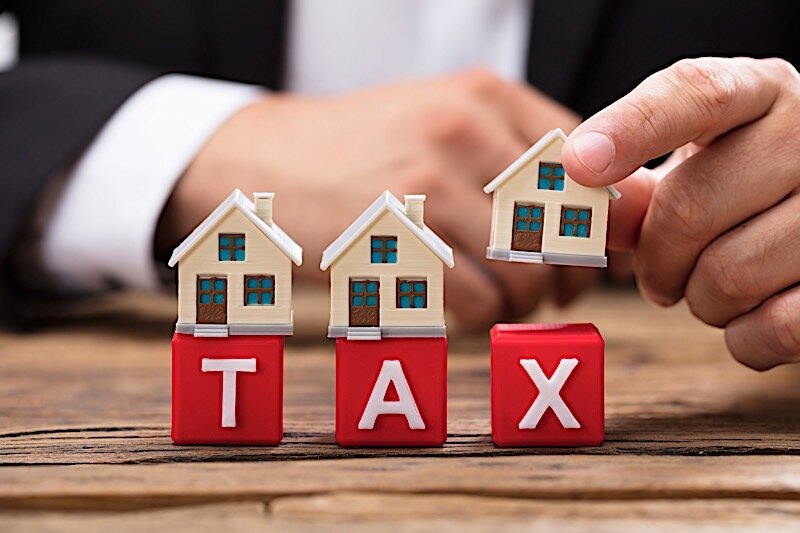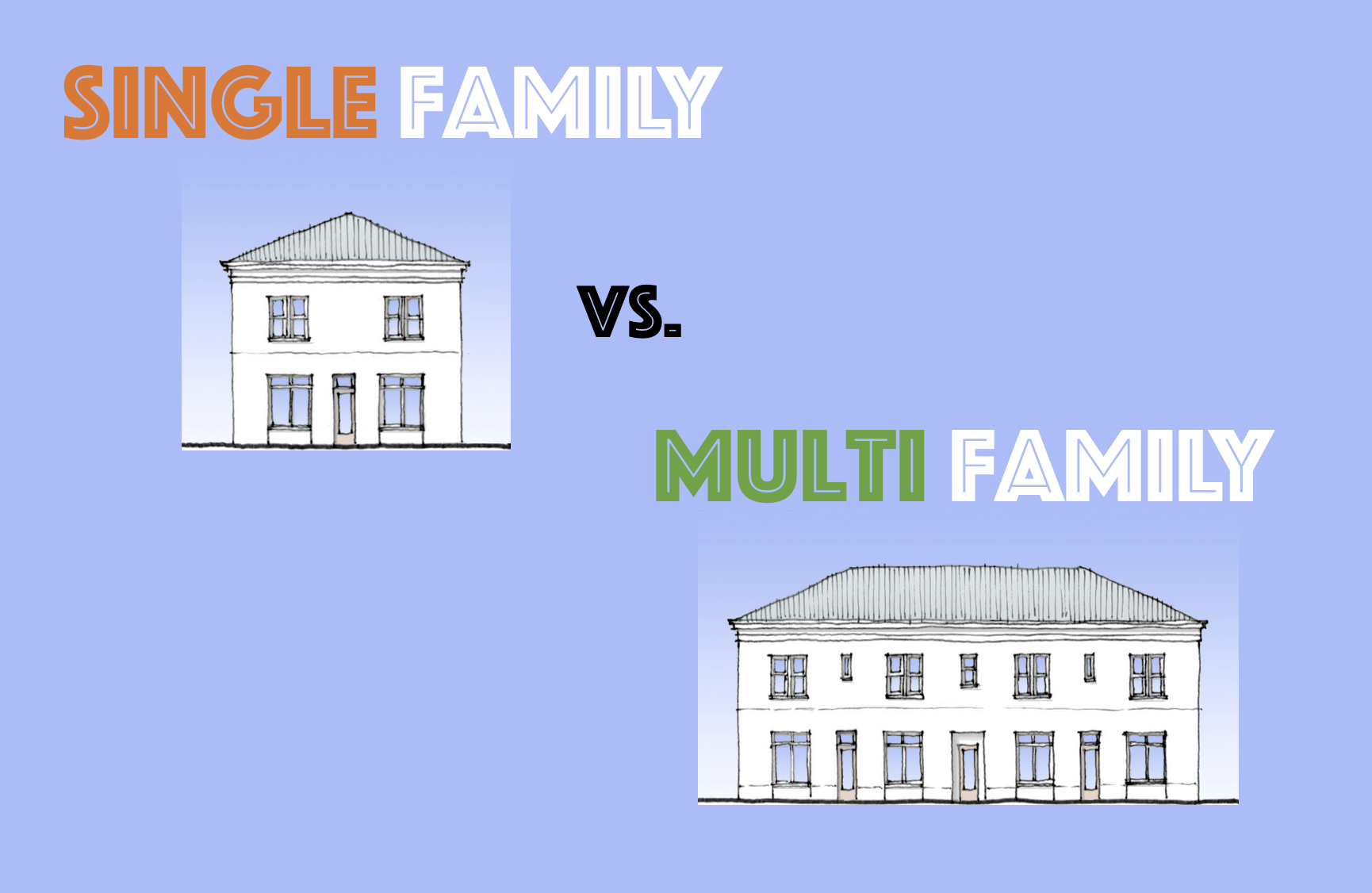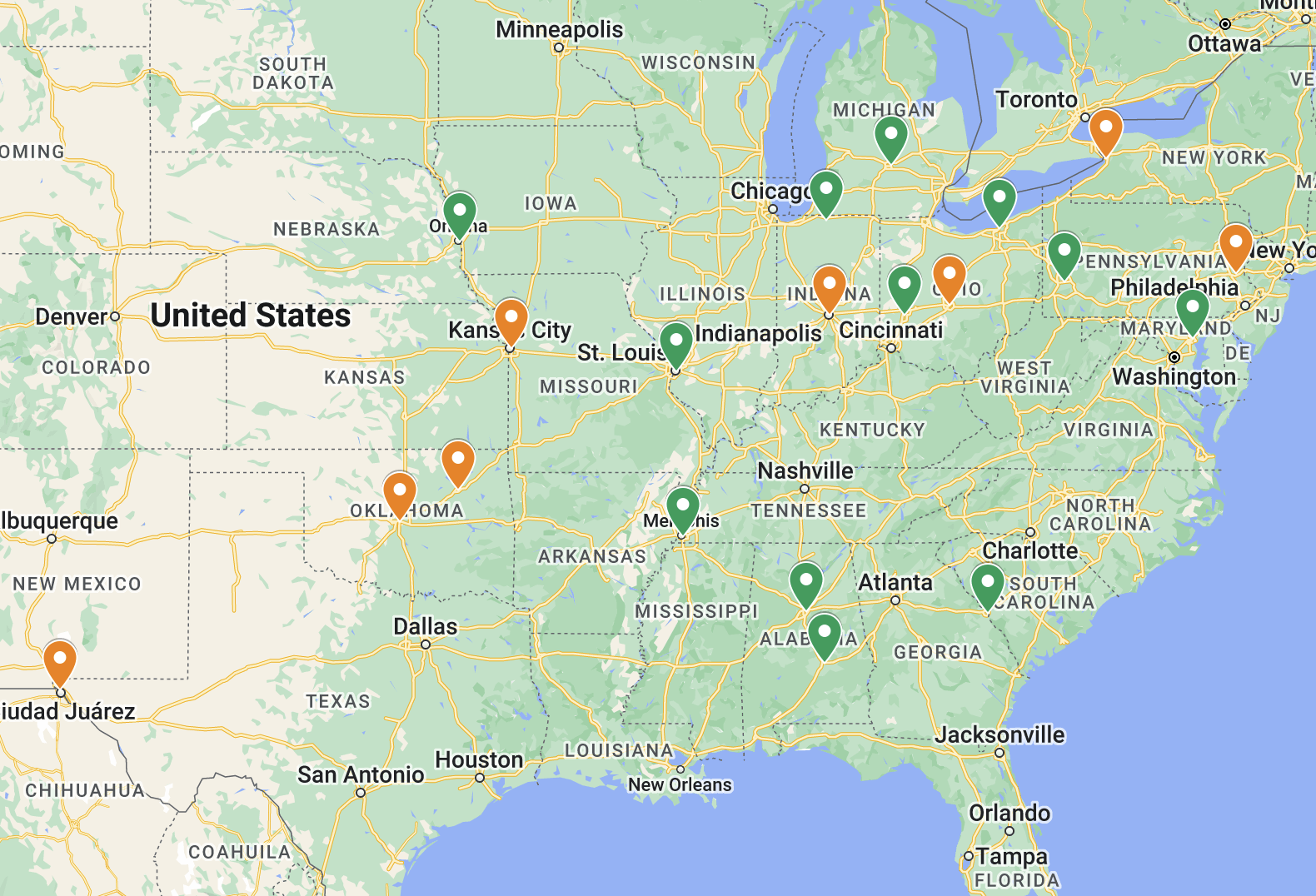The Powerful Tax Advantages of Rental Properties
Last updated: 2024
Owning rental properties comes with huge tax benefits for investors. You might already know that, but have you ever seen exactly how those tax advantages allowed one rental property investor (ahem…me) to pay $0 in taxes on his annual rental income?
Well, you’re about to!
In one of my first blog articles about why rental properties are the best investment you can make, I argued that rental properties are a uniquely attractive investment vehicle for THREE primary reasons:
The ability to generate a very high cash yield (aka cash-on-cash returns)
The access to cheap, low-risk financing using mortgages
The advantages built into the tax code for real estate investors
Since that early article, I’ve returned to the first two topics many times in the course of my writing — demonstrating the high rate of cash returns I achieve in my portfolio (see my Annual Portfolio Reports), diving into the power of mortgages to supercharge your returns, showing how both these factors combine to allow rental properties to easily beat stock returns in the long run — but I have never come back to explore the tax advantages of rental properties in more detail.
That time has come! In this article, I’ll return to this important topic to explore it more deeply — and as usual I’ll provide concrete examples from my own portfolio to illustrate the key points. I’ll organize the discussion into three main sections:
Rental Property Expenses are Tax-Deductible
Depreciation: The Ultimate Tax Deduction
Other Tax Benefits of Rental Properties
At the end of the article, you will see how I paid $0 in taxes on my rental income in 2020, despite generating nearly $60K in cash flow. And without breaking any tax laws! (Note: this is still very much the case in the years since 2020, but these numbers perfectly illustrate the concepts and dynamics at play, and therefore I don’t feel they need to update them with more recent data.)
Let me throw in the requisite caveats here: I am not a CPA or tax professional. It’s a good idea to have one of those, and consult them about your personal situation. Also, remember that tax laws can change at any time, so while the information provided here is accurate as of the time of writing, it may not be accurate forever.
OK, let’s get into it!
Rental Property Tax Advantage #1:
Tax-Deductible Expenses
Here is the first key concept to understand about how rental property income is taxed: the IRS treats your rental properties like a business, so you only pay taxes on your profit (aka net income). In other words, the rent you collect is not taxed as income; rather, your are taxed on your net income after all your expenses are deducted.
Another important point: your rental income is treated this way whether you own your properties in a business entity (i.e. an LLC) or you own them in your own name. All the same deductions are available either way. (My previous article on LLCs for Rental Properties covers this point in more detail.)
Ok, so what expenses are considered deductible? Well, pretty much everything…
Repairs & Maintenance
Anything you spend in order to perform repairs or maintenance on the home can be deducted. This includes the cost of supplies if you purchase them yourself, and the cost of service providers you hire to do the work. If you pay your property manager to do the repairs, this is likewise deductible.
Note that you may not deduct capital expenditures, which are treated differently for tax purposes. More on that below.
Insurance
The annual cost of your insurance premiums are deductible expenses. This applies to your regular homeowners insurance policy, but also to other forms of insurance you may carry such as flood insurance or umbrella liability insurance. The expense is deductible if you pay it directly, or if your bank pays it on your behalf out of an escrow account.
Property Taxes
Property taxes you pay to the county, city, schools, municipality, etc., are deductible as well, likewise without regard for whether those bills are paid out of your pocket or out of escrow.
Property Management
If you use a property manager — and you definitely should — the fees you pay can be deducted. That includes everything your PM may charge you for, including a percentage of rent collected, leasing fees to place new tenants, lease renewal fees, etc.
Mortgage Interest
One of the most important deductions you can claim is the interest you pay on your mortgage. Again, remember that this is NOT the full amount you pay to your lender each month, which includes some principal, and likely also includes an escrow payment to cover property taxes and insurance — only the interest portion of your payment is deductible. But as we’ll see, that can still be quite significant, and it’s just one more way that mortgages can make your rental property investments more profitable.
Utilities
Rental property owners don’t typically pay utilities while the house is occupied — that’s the tenant’s responsibility. But if you own a small multifamily property (2-4 units under one roof), then you may have some utility expenses that you pay each month. Those expenses, as well as utility expenses you incur while your properties are vacant between tenants, are deductible.
HOA Fees
HOAs aren’t common in single family homes, but they are in condos. Either way, you can deduct them.
Professional Fees
If you pay for a lawyer or accountant in the service of your rental property business, you can deduct these expenses. Real estate broker fees (such as those you would incur when you sell a property) are also deductible.
Other Stuff: Travel, Office Space, Software & More
You can deduct your travel expenses if you drive, fly, or stay overnight to visit your rental properties. And you can deduct the cost of a home office you use to run your business, including office supplies and software. These deductions are somewhat less common and a bit trickier, so definitely consult your tax advisor on these.
Things That Are NOT Deductions
Phew, that’s a lot of things you can deduct! But there are a few things that you cannot deduct:
Capital Expenditures. If you replace a roof of make other large capital investments, these cannot be claimed as deductions. Instead, these will be depreciated over time, according to depreciation schedules prescribed by the IRS.
Closing Costs. One-time fees that you pay at closing — to the title company, to your lender (including points), to the state or locality, etc. — cannot be claimed as deductions. Rather, these costs are added to the cost basis of the home, which will help you a bit if and when you sell the property. (Note that this exclusion does not apply to certain charges that you may pay at closing that are NOT “true closing costs”, such as your first year’s insurance premium — that is still a deduction, because insurance premiums are deductible.)
A Look at My Deductions in 2020
Earlier this year, I did a full recap of my portfolio’s numbers in 2020. Spoiler alert: it showed I had cash-on-cash returns of ~10%, slightly exceeding my pro forma, and also had large growth in home equity due to mortgage principal reduction and strong home price appreciation.
But I didn’t talk about my tax situation for the year. So let’s layer that on right now.
(If you’re the exacting type who’s going to compare numbers against that previous article, be forewarned that the numbers may not match EXACTLY, for various reasons: that article excluded the two properties I bough in the middle of 2020 whereas my taxes include them; my accountant may have recategorized or corrected certain transactions; the previous analysis treats principal pay-down as an expense, whereas this cannot be deducted on my taxes; and the inexorable march of entropy in the universe.)
Anyway…let’s start with three sample properties in my Memphis portfolio (#5, #11, and #12), and look at revenue and expenses for each property last year, as well as the totals for my FULL Memphis portfolio:
All three properties showed good net income for the year. Property #5 had the strongest profit as a percent of rents (thanks to very low maintenance costs), #12 had the lowest, and #11 was about the same as my portfolio overall. You can also see that mortgage interest is easily the largest deduction for my properties, reducing my taxable income by nearly $60K last year.
After all expenses, then, my net income was over $59K. Let’s assume for the sake of this article that I’m in the 24% tax bracket, which would imply a federal income tax liability of ~$14,350.
But I already told you I paid $0 in taxes last year. To understand how that’s possible, we need to move on to the next major tax advantage of real estate investing, and the mother of all deductions: depreciation.
Rental Property Tax Advantage #2:
Depreciation
Depreciation is another example of how the IRS treats rental properties as businesses. But before we talk about real estate, let’s walk through an example in a different business to illustrate the concept of depreciation.
Imagine you own a small farm. Like any other business, your farm has revenues (the sale of crops) and expenses (seed, fertilizer, irrigation, labor, and everything else needed to produce those crops). You and your employees have always worked the land by hand, but in order to become more efficient, you decide to make a large investment and buy a brand new $25,000 tractor.
Unlike the wages you pay an employee to drive the tractor, the cost of the tractor itself is not a deductible expense. In truth, you didn’t spend $25,000 — rather, you exchanged $25,000 in cash for an asset (the tractor) that is also worth $25,000. You could theoretically turn around and sell the tractor for $25,000, and be right back where you started.
But let’s say you keep the tractor for a year. You probably couldn’t get $25,000 for it anymore — perhaps it would only be worth $20,000 to a potential buyer due to some normal wear & tear. As a business, how do you account for the $5,000 in asset value that you lost during that year?
The answer: you deduct $5,000 of depreciation expense in that year. This expense, like all other expenses, would offset income on which you would otherwise pay taxes. (In fact, this is exactly how it would work in real life: the IRS allows new farm equipment to be depreciated on a 5-year schedule, so this tractor would allow you to take a $5,000 deduction for the first five years after you bought it, at which point it would be fully depreciated and have $0 value to the company — at least as far as your accountant and the IRS are concerned.)
This concept applies in very much the same way to rental properties, with two important changes. First, you don’t get to depreciate the full purchase price of the property; only the structure itself can be depreciated, not the land it sits on (which is rightly deemed not to be an asset that depreciates.) For most properties, the value of the land is ~10-20% of the price of the home, leaving the remaining 80-90% available to be depreciated. Second, the depreciation schedule for residential properties is 27.5 years, not 5 years — so instead of dividing the depreciable amount by 5, you divide it by 27.5, and claim that amount as a deduction every year for the first 27.5 years you own the property.
Let’s examine what depreciation meant for my portfolio last year by layering my depreciation expenses on top of all the regular deductions we discussed above:
Wowza — depreciation wiped out nearly $50K of my taxable income! And for property #12, it actually allowed me to report a loss for the year, which offsets other properties that had a gain.
But that still leaves me with almost $10K of net income, and a potential tax liability of over $2K. How did I avoid paying that? Well, in addition to my portfolio in Memphis, I own a few rental condos in my home town of New York City, which are also part of my tax returns. (Note: I have since sold these properties and redeployed the capital into growing my Memphis portfolio.) These are more expensive properties that therefore have larger depreciation expenses — so large, in fact, that three out of four of them report significant losses for the year:
These losses more than offset the gains in my Memphis portfolio, which means that the overall rental income I reported for the year was negative. Not only does this mean I paid $0 in taxes on my rental income last year, I can even carry over some of those losses to offset income in future years!
Even without my New York City properties, though, I would only have owed $2,361 in federal income tax on nearly $60K of cash flow, for an effective tax rate of 3.9%. (I also don’t have to pay Social Secure & Medicare taxes on this income, which I’ll discuss below.)
This incredibly low effective tax rate means something else very important if you’re thinking about using rental income to replace some or all of your W2 income: $1,000 of rental income is worth ~$1,500-$2,000 of W2 income (depending on your tax bracket, state income tax rate, and other individual factors). In other words, if you’re looking to fully replace the take-home income from a W2 job that pays you $60K per year, you would likely only need $30K-$40K of rental income to achieve that. This further bolsters the case I’ve made before that rental properties are the best and fastest way to reach financial independence and early retirement.
Depreciation Recapture Tax
Depreciation can seem like a cure-all for taxes on your rental property income. But there is a catch: if you ever sell the property, you will be subject to depreciation recapture tax.
How does depreciation recapture work? Let’s do a simplified example: imagine that you bought a house today for $100K, and owned it for the next 30 years. That’s enough time for the full $100K to be depreciated, driving the book value of the property to $0. But when you sell the property, not only will it be worth more than $0, it will likely be worth much more than the $100K you bought it for. For the sake of this example, let’s say you sell it for $200K.
The IRS will see that you sold it for $200K and say (with feigned surprise) — “Hey wait just a minute there! You’ve been telling us for the last 30 years that the house is losing value, but in fact it was GAINING value. That doesn’t seem fair, so we’re going to claw back the entire cumulative benefit you received from claiming that depreciation.”
The IRS will then proceed to charge you depreciation recapture tax on ALL $100K of depreciation that you claimed over the years — and this is taxed like ordinary income, not capital gains. So if you’re in the 24% tax bracket, you would owe $24,000 in taxes. (You'‘d also owe capital gains tax on the additional $100K, which for most taxpayers would be at the somewhat lower rate of 15% — but that’s still another $15,000 in taxes.)
In truth, then, claiming depreciation against your rental property isn’t a way to AVOID paying taxes on rental income, but rather a way to DEFER those taxes until such time as you sell the property.
At this point you might be thinking, “Well, I guess depreciation isn’t so valuable after all.” But you’d be wrong! Despite the recapture tax, depreciation is still a hugely powerful tool for real estate investors:
Deferring taxes allows you to pay them in future dollars, which are cheaper than today’s dollars. In the example above, you might owe the same $24,000 in taxes that you would otherwise have paid in earlier years, but you’re paying them in 2051 dollars, which will be worth much less than today’s dollars thanks to the slow, steady erosion in the value of a dollar caused by inflation.
Deferring taxes means you can invest those dollars in the meantime, and make them grow. In my examination of stocks vs. rental properties, one of most important factors that gave rental properties a big edge was the ability to invest the cash returns of the properties during the investment period to create a snowball effect. So this is very important indeed.
You can avoid depreciation recapture taxes (and capital gains taxes) altogether using a few additional strategies, as you’re about to see…
Rental Property Tax Advantage #3:
The 1031 Exchange and More
Sections 1 and 2 are the heart of the matter when it comes to the tax advantages of rental properties. But there are a few additional peripheral benefits worth mentioning. This is by no means a comprehensive list, but I’ll touch on three:
Self-Employment Taxes
The 1031 Exchange
“Buy ‘Til You Die”
Self-Employment Taxes
If you were to run any other business, you would be responsible for paying BOTH the employer AND the employee portions of the income taxes that fund Social Security and Medicare, sometimes called self-employment taxes. This is a pretty big levee of 15.3% consisting of two parts: 12.4% for Social Security (up to specified income limits), and 2.9% for Medicare (on ALL income without limits).
However, because rental income is considered passive income, not earned income, it is not subject to these taxes at all. This is an important but often overlooked tax benefit of owning rental properties, at least when compared to owning other kinds of businesses.
The 1031 Exchange
This is a topic that could fill its own blog post — and in fact, there are many such articles to be found online if you’re curious. There are numerous specific rules governing these exchanges, which I won’t get into here, and you’ll need the guidance of a person/entity called a Qualified Intermediary if you’re going to do a 1031 exchange.
But the basic idea is that you can sell a property and completely defer both depreciation recapture tax and capital gains taxes, as long as you exchange the property you sold for other “like-kind” properties — in other words, if you use the proceeds to buy other rental real estate.
You could use this strategy to sell one property and buy one in a new market or neighborhood; to sell multiple properties and buy one larger one; or to sell one expensive property and buy several cheaper ones. You could even us it to trade up from single-family to multi-family properties. In all those cases, you could defer any immediate capital gains (and depreciation recapture) taxes that you would otherwise owe.
”Buy ‘Til You Die”
There’s one other way to avoid depreciation recapture tax and capital gains tax, and that’s to never sell the properties at all. In that case, the properties will be passed on to your heirs, whose cost basis for the properties will reset to the value of the properties at the point of inheritance.
Continuing the depreciation recapture tax example above: that same $200K house would not come with any tax strings attached for your heirs — both the $24,000 of depreciation recapture tax and the $15,000 of capital gains tax that you would have paid upon sale of the property are wiped away, and your heirs start fresh at a new cost basis of $200K. (How nice for them!) This strategy is affectionately (but somewhat morbidly) referred to as “buy ‘til you die”.
Conclusion
Here are your key takeaways:
High cash flow and the availability of mortgages are the two biggest reasons rental property investing is so appealing. But the third leg of that stool, tax advantages, is very powerful as well.
You are taxed only on your profit after all expenses are deducted — including mortgage interest, which may be the largest single deduction you take.
Depreciation is the mother of all deductions, and dramatically lowers your effective tax rate on your true net rental income.
Depreciation recapture tax and capital gains tax can bite you when you sell a property. Still, paying taxes later is always better than paying them now — and you can avoid these taxes altogether with a 1031 exchange, or simply by holding the properties indefinitely.
About the Author
Hi, I’m Eric! I used cash-flowing rental properties to leave my corporate career at age 39. I started Rental Income Advisors in 2020 to help other people achieve their own goals through real estate investing.
My blog focuses on learning & education for new investors, and I make numerous tools & resources available for free, including my industry-leading Rental Property Analyzer.
I also now serve as a coach to dozens of private clients starting their own journeys investing in rental properties, and have helped my clients buy millions of dollars (and counting) in real estate. To chat with me about coaching, schedule a free initial consultation.
Free Rental Property Analyzer
Now that you understand the powerful tax advantages, you may be itching to get into the rental property game! If so, you should know that a well-designed rental property calculator is the most important tool an investors has. It allows you to quickly calculate key metrics and understand your cash returns on a target property. You can also answer questions like:
How much do your cash-on-cash returns improve if you use a mortgage vs. paying in cash?
What will your average monthly cash flow be?
How will your returns change in future years?
Those questions can be easily answered with side-by-side comparisons in the RIA Property Analyzer. I guarantee this is the best free rental property calculator out there today, and many of my readers have told me the same. It’s both powerful and very simple and intuitive to use. Check it out!





















